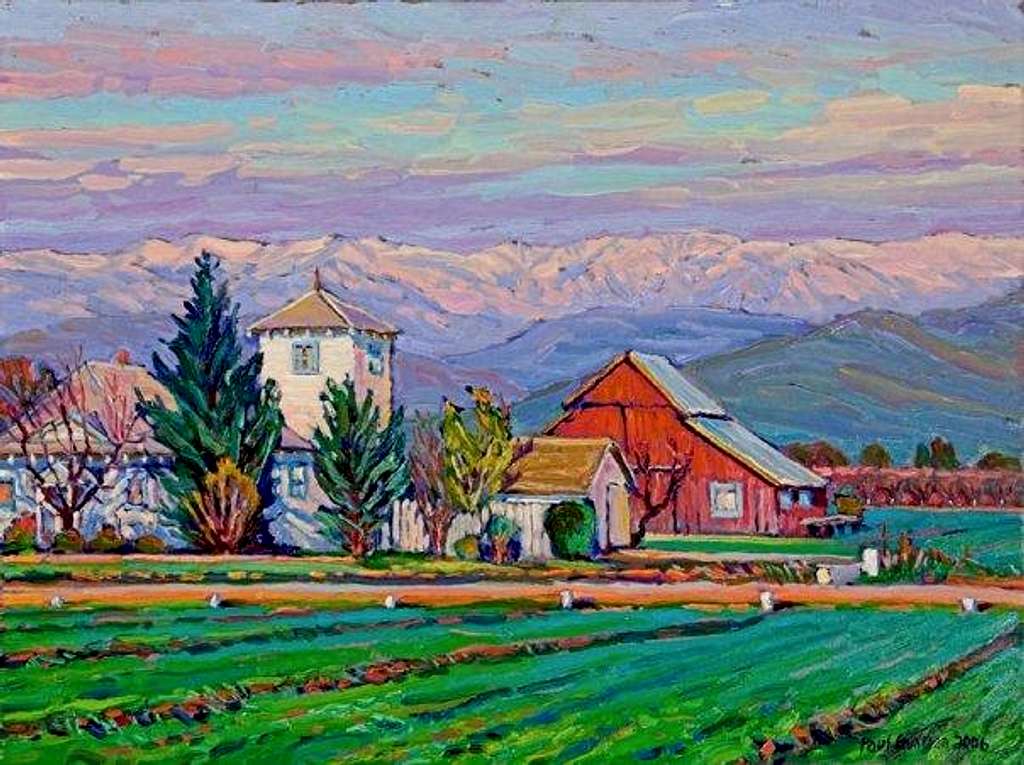
Paul Buxman
Winter Farm, Oil on canvas
"It is easy to miss the beauty of the San Joaquin when you live in the middle of it. The summer heat and the haze can be stifling and the fight to hold on to a small family farm can possess almost every thought. But when the last peach has been picked and the last grapes hauled in, fall finally comes. Shadows lengthen, temperatures cool, and there is once again time to reflect and be thankful for this great valley we call home. It’s time again to gather the ‘visual harvest.’"
Paul grew up on a small farm in the heart of the San Joaquin Valley in California at the foot of Smith Mountain which rises singularly like an island from the valley floor. “It was a magic landscape of hayfields, vineyards, wild blackberry lined canals, peach orchards, orange groves and cows. The high Sierra filled our eastern view and to the west were endless small farms which seemed to reach clear to the Pacific Ocean.”
Paul studied plein air painting in Illinois with Karl Steele, a student of Robert Henri. He then returned to California to teach and principal a small mountain school while teaching figure painting at the Fresno Art Museum. In 1980 he devoted himself to full time painting and farming. Two years later his son, Wyeth, developed leukemia which sent Paul on an environmental quest to clean up the San Joaquin Valley’s rapidly deteriorating water, soil and air quality. He pioneered clean farming techniques which led to many sustainable practices used today. He was the first person honored by the EPA for such work. He went on to champion preservation of farm land and family farms. His artwork became his illustrative voice. It hangs today in our nation’s Capital as “a reminder to our leaders of what we must preserve.”
Paul’s work as an environmentalist and artist has been documented by National Geographic, American, Canadian and Australian Public Broadcasting, Bill Moyer, and California Heartland. He has lectured, taught and shown his work through much of the western United States in universities and museums.
